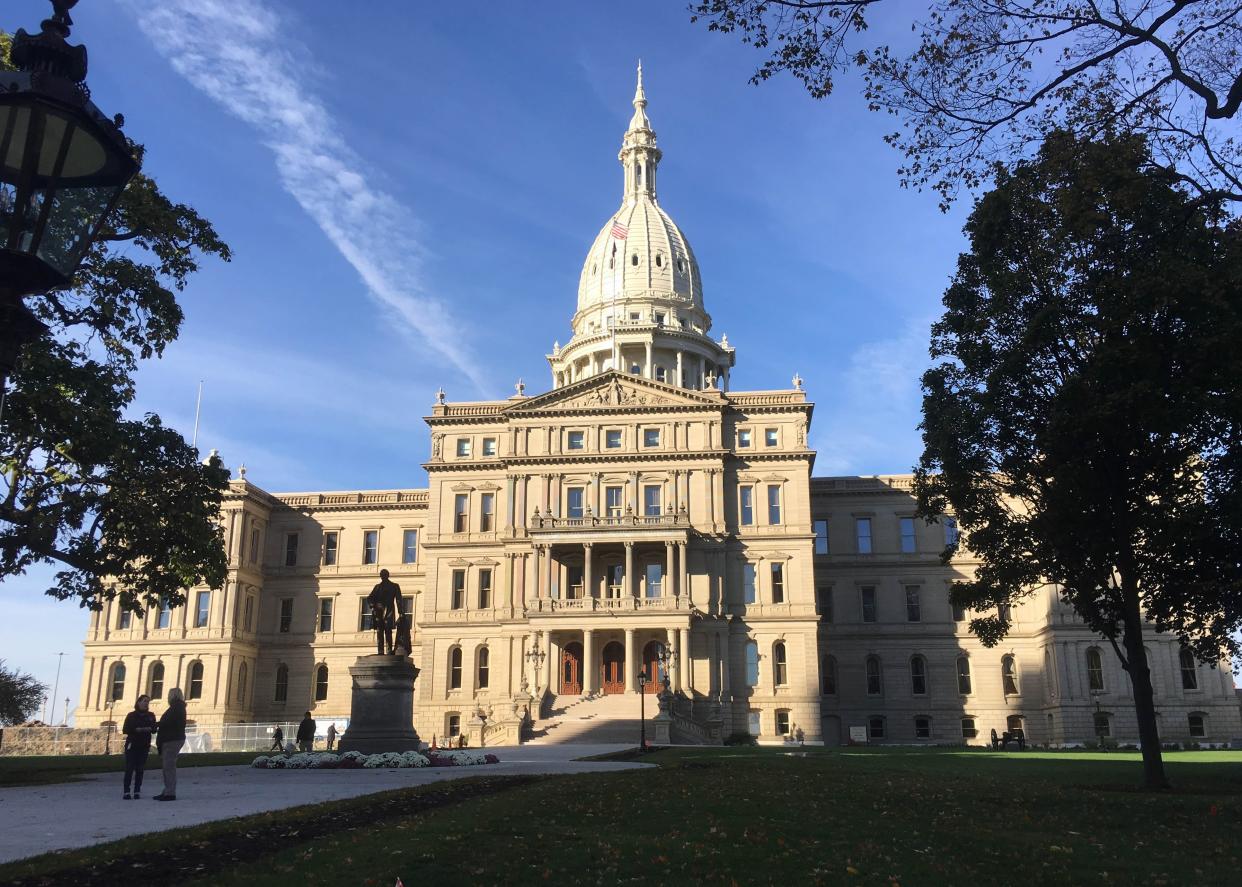Bills could threaten community 'safety net' for mental health patients, opponents say

- Oops!Something went wrong.Please try again later.
PETOSKEY — Five northwest Michigan counties have voiced their opposition to two bills in the state senate they say would sever local control of mental health services.
Senate Bills 597 and 598 were introduced in the summer. The bills’ sponsors, State Senate Majority Leader Mike Shirkey, R-Clarklake, and State Sen. John Bizon, R-Battle Creek, say the plan replaces a broken, bureaucratic system with a more effective setup by letting private insurance companies take over the coverage of Medicaid recipients with pressing mental health needs.
It’s, in fact, the way Medicaid coverage is handled for physical health care. For that reason, proponents say the Senate bills would help integrate care for Medicaid recipients, integrating their primary care and mental health coverage under one system.
“Our system can and must be patient-centered and outcomes-based,” said Shirkey in a press release when he introduced the bills. “The trauma suffered during the COVID-19 pandemic magnified and amplified the weaknesses in our current mental health system. The science shows when mental health and physical health care are addressed and evaluated together, it leads to better outcomes for both.”
But community mental health agencies — the frontlines to providing care for those with the most severe needs — see it as a scheme that would dismantle a vital public safety net.
“At the basis, the foundation of these bills is to take the money that is earmarked for a very large array of services to support those vulnerable people and to give it to insurance companies — the private insurance companies,” said Christine Gebhard, CEO of North Country Community Mental Health.
Community mental health agencies primarily aid those “with very serious and persistent mental illness: kids with severe emotional disturbances, adults and kids with intellectual and developmental disabilities, and people with substance use disorders,” according to Gebhard. On top of that, she said they provide important collaboration between various entities, like jails and courts, with public health experts.
Gebhard has been urging county officials throughout her service area to pass resolutions opposing the plan. So far, all but Emmet County have done so, though Gebhard appeared at an Emmet County board meeting last week to appeal to them.
“I’m very concerned about those bills … I would like Emmet County to take a position, but this is equivalent to dropping an atom bomb on the people who can least afford it,” said commissioner David White, who serves on the community mental health board, at that meeting. “There won’t be anything left of public community mental health after these bills are passed.”
Among other objections, Gebhard said the bill would deprive local governments of how they manage health services in their own communities.
That organization provides mental health services to Medicaid beneficiaries in Antrim, Kalkaska, Charlevoix, Otsego, Cheboygan and Emmet counties. The service is funded by each of those counties, and is overseen by a board which includes two commissioners from each of those counties.
“What this bill will do is remove that local control and that local governance from the work that we do, and as a safety net provider, why is that important?” she said. “Because we get to determine how we best meet the needs of our local citizens.”
Rather than by private insurance companies, Medicaid coverage for mental health concerns in Michigan is managed by what are called Prepaid Inpatient Health Plans. Those are typically comprised of and governed by several adjacent community mental health centers.
Those community mental health centers would purportedly remain intact under the plan laid out in Senate Bills 597 and 598, but instead of having governance over Prepaid Inpatient Health Plans, they would enter into contracts with private insurance companies.
Opponents, including Gebhard, say that would diminish the quality of care patients could receive, because commercial agencies have to look out for their bottom line and ensure profits for shareholders. Community mental health agencies, on the other hand, are required to at least serve those with the most severe needs.
Often, that’s financed through Medicaid, but for individuals who have severe needs without Medicaid, community mental health groups maintain a general fund made up of state dollars.
But those general funds have been decreasing in recent years, according to a 2019 presentation to a state House subcommittee from the Michigan Community Mental Health Association, which is one source of strain on the system that can lead to inefficiencies.
But Gebhard said the problems with the current system can be fixed with funding and other solutions.
“It doesn’t require restructuring, or deconstructing really, a program that’s been built over 40 years,” she said.
This article originally appeared on The Petoskey News-Review: Michigan bill would supplant public mental health with private insurance

